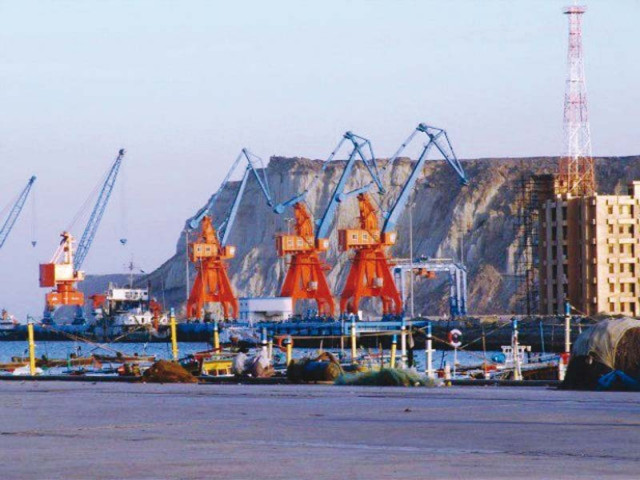Corridor of opportunity: Accountants set to assess CPEC’s regional impact
Seminar to draw experts from Pakistan, India, Bangladesh, Sri Lanka and Nepal

PHOTO: REUTERS
The seminar titled “Corridor of Opportunity” will focus on the level of development the project would bring to the region. ICAP President Hafiz Muhammad Yusuf, while briefing media about the conference, stated it would be attended by renowned chartered accountants from Pakistan, India, Bangladesh, Sri Lanka and Nepal, who would throw light on the opportunities offered by the corridor.

“Pakistan is destined to become the epicentre of global economic activities. The country’s geographic location has made it a resilient economy,” Yusuf said. “CPEC will also provide the chance for Pakistan to seamlessly connect with the entire region.”
He said besides the president of Pakistan, the conference would be attended by Minister of Planning and Development Ahsan Iqbal and Finance Minister Ishaq Dar, who is also a chartered accountant.
SAFA President Naeem Akhtar Sheikh said the association members shared best accounting practices with each other to ensure better accounting standards in the region.
“We are trying to improve accounting standards in Afghanistan, Mauritius and Bhutan that currently do not have a financial regulator,” he said. “Efforts of chartered accountants are more likely to bring regional countries closer because they will identify the opportunities that the corridor will offer.”
Sheikh added “convergence of world renowned professionals and experts on a single platform will enable policymakers of the country to resolve the energy crisis and seek new dimensions for energy solutions.” The country’s energy and water crisis has been the main concern of the government while agriculture and industrial sectors have also been adversely affected.
Published in The Express Tribune, January 26th, 2016.
Like Business on Facebook, follow @TribuneBiz on Twitter to stay informed and join in the conversation.



















COMMENTS
Comments are moderated and generally will be posted if they are on-topic and not abusive.
For more information, please see our Comments FAQ